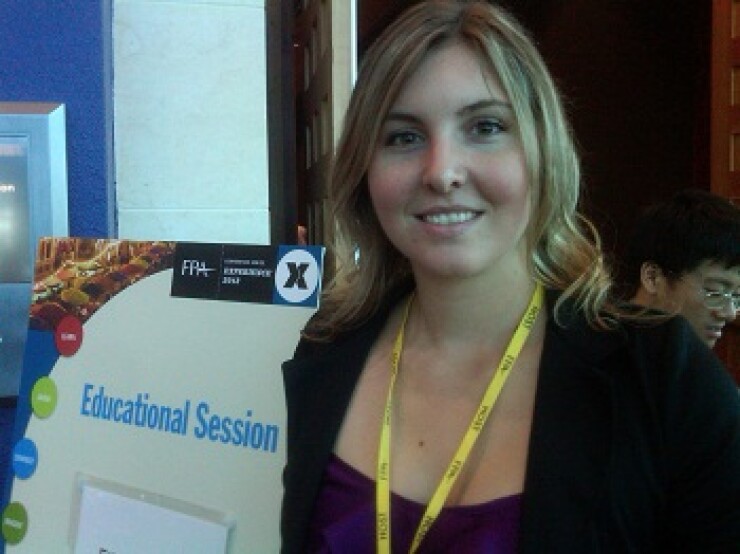
SAN ANTONIO - Advisors flock to the Financial Planning Association annual conference to rub shoulders with and learn from peers with big client rosters and multibillion-dollar assets under management. But more than 100 attendees of the nearly 2,000 planners here have a far more modest AUM: zero.
"This probably shows how small town I am, but I didn't know how many planning firms there were," says Tyler Davis, a 21-year-old senior at Northeastern State University in Tahlequah, Okla., attending his first FPA conference. He was attracted to the profession when he was 17 and was hired in his high school senior year by a bank in his hometown of Stillwell, Okla.
"To be honest, I think a lot more people, especially in the town I'm from, could use a financial planner. A lot of people aren't prepared for the years after work," says Davis, who in between FPA events was studying from a book on retirement planning that looked to be 1,000 pages long and helping make sure planners who attend certain sessions get continuing education credit.
Davis, who is pursuing a bachelor's of business administration degree, says he started saving for retirement himself after he worked at the local bank. "I don't think Social Security will fail by the time I get to retirement, but it can't be your only option as far as retirement income," he says.
Wealth management is a promising career, he says, because "it's more than just planning, it's educating people."
Kristen Echols, a 20-year-old junior at Colorado State University, is also attracted by the notion of educating people, but worries that a career in planning could mean spending too much recruiting new clients and pitching product. "I don't know how realistic it is me doing it personally. I don't know how much of a sales person I am," she says. "If I were to become a planner, I'd like to have it where it didn't seem like I was selling somebody something." For her, the goal "is to have that personal relationship with a client." If not, she says, she is also considering a career in corporate finance.
Echols, who is marketing director of the student chapter of the FPA at her school, says she also is concerned about the path for women in the planning field, but sees that as a possible opportunity. "I've been told that it is harder for women to become financial planners." In talking with professionals at FPA, though, she's also "heard that women can complement a planning firm by emphasizing the soft side by being more humble and understanding."





